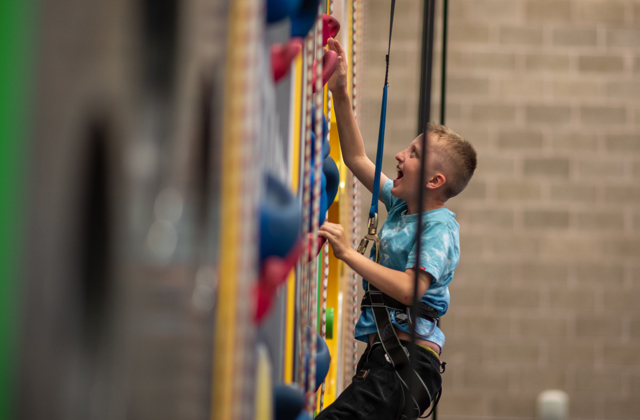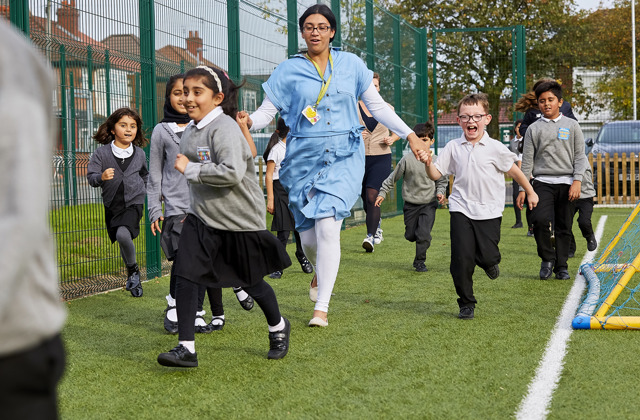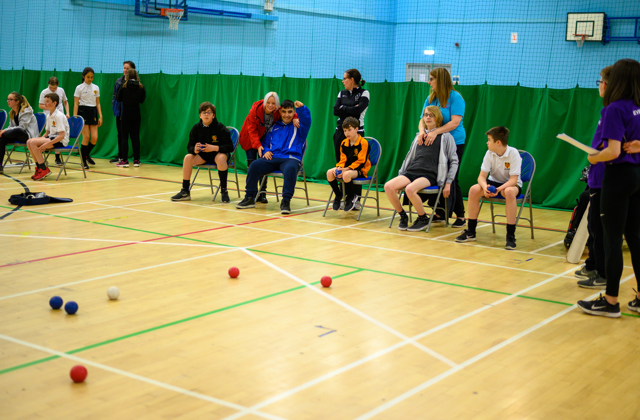Active education
Active education plays an integral role to support the GM moving priority to ensure that all children and young people can lead active lives.
We know that childhood and adolescence is a key time in a person’s life to create healthy, lifelong habits. With children and young people spending a large amount of their time within education, it presents a key opportunity to support them to move more, improve confidence and competence and help create positive, lifelong relationships with activity. We can do this by providing a variety of activities, both formal and informal, and adapting what’s offered based upon children’s interests.
We also know that physically active children are happier, more resilient and more trusting of their peers. Ensuring that children and young people have access to sufficient daily activity benefits both the child and the school by improving behaviour and enhancing academic achievement.
In Greater Manchester, only 67.8% of children and young people are active for at least 30 minutes a day (Active Lives Children and Young People, 2022-23.) This includes activity during the school day, both curriculum time and break times, and outside of school highlighting a need for us to tackle this together.
Further details please contact
- Jess Simons
Active Children Lead - [email protected]
- 07395795935
Work in this area
To help us achieve these priorities, partners across Greater Manchester are working together to support our schools to become more active. Information about some of these programmes and initiatives can be found below.
Primary PE and Sport Premium
This provides funding to make additional and sustainable improvements to the quality of PE, physical activity and sport in primary schools. This can be used to support the school workforce by investing in CPD opportunities.
The Daily MileTM
This is a simple, free initiative in which children are encouraged to jog or run at their own pace, for 15 minutes every day. It can help to achieve different priorities for the development of young people, such as improving concentration and behaviour.
Greater Manchester School Games
The School Games is a programme that inspires young people to be physically active for life through positive experiences of daily activity and competition. It offers a variety of opportunities both in localities and across the city-region for children within school settings.
Opening School Facilities
Opening a school’s facilities at evenings and weekends can benefit both the school, its pupils and its community. With schools’ perceived safety and familiarity for young people and the local community, they can provide more safe spaces for children and young people to be active.
Children and Young People Active Lives
This survey gathers data on how children and young people engage with sport and physical activity and helps us to understand their attitudes and behaviours towards it. This can help us to shape better opportunities for them to be active. Schools can also get bespoke reports specifically about their students’ activity to help them better improve their own physical activity provisions.





Latest News
All News
Calling Early Years settings staff - we want to hear from you!
Even for Under 5s movement is important and supports a range of outcomes, including physical and mental health, wellbeing and school readiness.

British Orienteering eLearning courses for schools
Introducing Orienteering for schools is a new initiative and has been designed to be the first step on the Orienteering leadership pathway and aims to equip schools and leaders with the knowledge and confidence to introduce Orienteering within their setting.

St Mary’s Catholic Voluntary Academy in Marple Bridge took part in a marathon relay, raising over £3,000
Inspired by The Daily Mile™, more than 250 pupils, families and staff from St Mary’s Catholic Voluntary Academy in Marple Bridge took part in a marathon relay, raising over £3,000 for the school.
